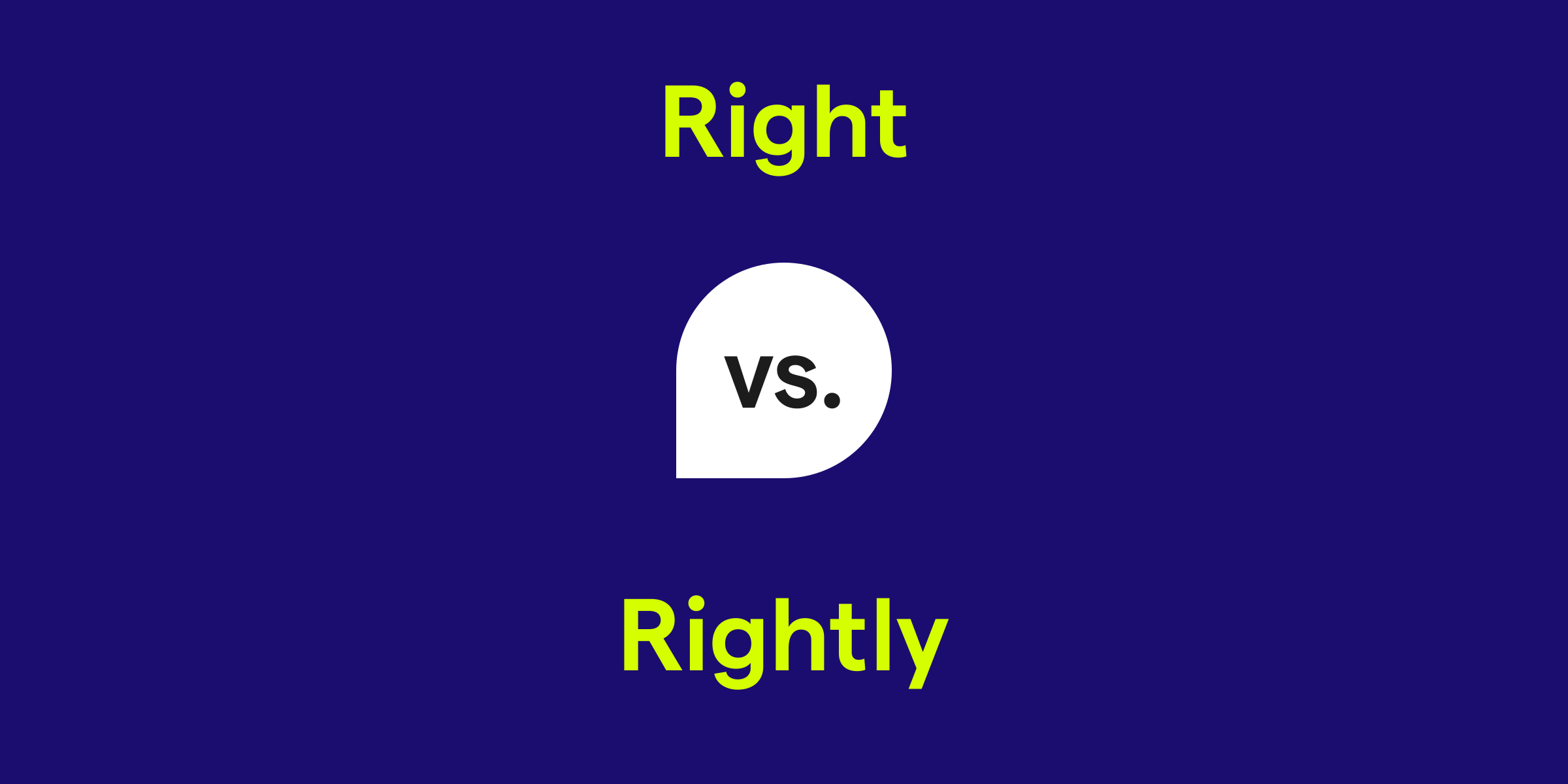Right vs. Rightly: What's the Difference?
The words right and rightly are often confused due to their similar meanings and close relation in English grammar. Right can function as an adjective, adverb, noun, or verb, and it generally pertains to something that is correct, just, or within legal or moral guidelines. Rightly, on the other hand, is an adverb that modifies verbs, adjectives, or other adverbs and it refers to doing something in a just, proper, or accurate manner.

How do you use the word right in a sentence?
The word right is used when referring to something that is correct or moral, such as a 'right answer' or 'doing the right thing.' It is also used to denote directional orientation, as in 'turn right at the corner.' Additionally, right can pertain to a privilege or entitlement which is legally or morally granted, such as 'human rights' or 'the right to vote.'
Examples of right in a sentence
- She got all answers right on her math test.
- Take the next right to reach the restaurant.
- Freedom of speech is a fundamental right.
How do you use the word rightly in a sentence?
Rightly is used as an adverb to describe the manner in which something is done in a justifiable, correct, or appropriate way. It emphasizes that the action was carried out for the correct reasons, with proper justification, or aligns with what is considered proper or accurate. Rightly often accompanies a verb to modify its meaning.
Examples of rightly in a sentence
- She was rightly praised for her quick thinking during the emergency.
- They are rightly concerned about the environmental effects of the new factory.
- The historical facts in the documentary were rightly depicted.
Right and rightly definition, parts of speech, and pronunciation
Right definition:
As an adjective, right means in accordance with what is just, proper, or moral. When used as an adverb, it means precisely, exactly, or directly. As a noun, it denotes moral or legal entitlement, and as a verb, it means to restore to a normal or upright position.
Right parts of speech:
Right pronunciation:
Right is pronounced as /rīt/. The pronunciation remains the same regardless of its part of speech.
Rightly definition:
Rightly is an adverb that means for a good reason, in an appropriate or justifiable manner, or correctly.
Rightly parts of speech:
Rightly pronunciation:
Rightly is pronounced as /ˈrītlē/. The emphasis is on the initial syllable with the 'lee' sound softly trailing.
As an adjective, right means in accordance with what is just, proper, or moral. When used as an adverb, it means precisely, exactly, or directly. As a noun, it denotes moral or legal entitlement, and as a verb, it means to restore to a normal or upright position.
Right parts of speech:
- As an adjective: He picked the right color for the room.
- As a verb: The captain managed to right the overturned boat.
Right pronunciation:
Right is pronounced as /rīt/. The pronunciation remains the same regardless of its part of speech.
Rightly definition:
Rightly is an adverb that means for a good reason, in an appropriate or justifiable manner, or correctly.
Rightly parts of speech:
- In modifying verbs: She rightly assumed that the keys were in the bag.
- In modifying adjectives: The award was rightly deserved.
Rightly pronunciation:
Rightly is pronounced as /ˈrītlē/. The emphasis is on the initial syllable with the 'lee' sound softly trailing.
Right vs. rightly in a nutshell
Determining when to use right vs. rightly hinges on understanding their functions in grammar. Right can be an adjective, adverb, noun, or verb and is generally associated with truth, justice, or direction. Rightly, however, always acts as an adverb, giving nuance to the manner in which actions or descriptors are presented, reinforcing their correctness or appropriateness. The distinction is subtle but impacts the clarity and precision of expression.
Get AI Writing Assistance Wherever You Type
Make sure your vocabulary is on point and every punctuation mark is in the right place, no matter where you’re working. Grammarly works across more than 1 million websites and apps so you can improve your writing without copying, pasting, or breaking focus.

More Commonly Confused Words
Interest piqued? Pore (not pour) over other commonly confused words to help your writing reach peak (not peek) performance.